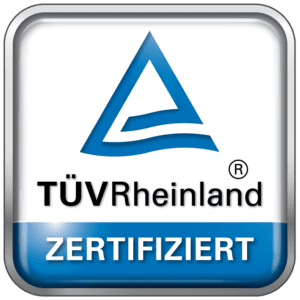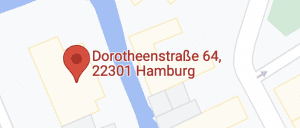Project Reference
Standardised Market Communication with EDA
Enterprises of the Austrian energy industry have been exchanging data with one another for many reasons: provisions of metering data, data for the switching of suppliers, electronic invoices, etc. To accomplish this safely, both power and gas suppliers along with grid operators need to transfer electronic data in a secure, reliable, and standardised way.
The EDA Project was initiated by the Austrian association of grid operators “Österreichs Energie” in order to provide a common data exchange infrastructure.
The EDA consortium has selected the message-based communication tool Ponton X/P, developed by PONTON as the main workhorse for sector-wide integration processes. Ponton X/P combines locally installed communication bridgeheads with central services for issuing electronic certificates, message routing, and technical support services. All this to provide an easy to access, unified communication layer which allows small and large organisations to participate.
The core of EDA is a shared, unified infrastructure supporting secure end-to-end communication:
- Security: Strong and end-to-end encryption and authentication at three different layers helps keep eavesdropping third parties out of the loop.
- Standardisation: EDA has defined clear rules for three aspects of B2B integration: XML document formats, business processes, and the communication protocol. Messaging-related standards are, among other things:
- Channel authentication based on TSL, document authentication using persistent PKCS#7 electronic signatures and XML signatures. Encryption at TSL layer as well as at document layer (end-to-end using AES265). Ponton X/P persistent signatures can be verified at a later point in time.
- AS4 messaging protocol with standardised features such as retry intervals, numbers of retry, duplicate elimination, PKI integration between CA and Ponton X/P, standardised failure handling, standardised identification of participants, processes, and messages, signed acknowledgements, etc.
- Standardised XML schemas with additional business rules and automatic validation by Ponton X/P.
- Flexibility: Connection effort is minimised for new market participants, regardless of size.
- Efficiency: Ponton has granted a sector-wide license to EDA for the entire EDA consortium. This is sublicensed to hundreds of organisations allowing for minimised adaptation cost. As sector-wide support is provided by Ponton. Any issues – which usually involved both sender and receiver – can be uniformly handled by Ponton. Total support cost is shared across the sector using a fair price differentiation.
- Performance: Despite the high level of end-to-end security, hundreds of thousands of ebXML messages are routed every day within seconds.
- Extensibility: After having started in 2013 with the supplier switching process, EDA users roll out additional functions on a short-term basis: meter data exchange (MSCONS format) was rolled-out in Summer 2014, exchange of electronic invoices and nominations started in 2014 as well. Since then, customer-centric processes have been added (CCM – Customer Consent Management, Management of Energy Communities, etc.). Any additional XML schemas can be easily added to the Ponton X/P validation function. Also non-XML document types (such as MSCONS Edifact formats) are signed, encrypted and routed to the receiver in the same way.
- Openness: Third-party vendors with ebMS 2.0 compliant messaging tools can adapt to EDA as infrastructure users.
- Connection to non-EDA services: If connection to third party services is required, the EDA infrastructure is extended by a dedicated gateway. Connection cost is shared by the EDA participants.
The integration effort has been minimised by applying the above measures among EDA participants.
EDA avoids sector-wide „Spaghetti Integration“
Businesses can only achieve efficient bilateral integration by standardising document formats, business processes, and their communication infrastructure. Without these changes too much room remains for individual bilateral adaptations which leads to individual solutions, this, in turn, leads to increased individual cost. Finally, this scenario makes sector-wide integration prohibitive except for a few of the largest enterprises. Nothing is gained in such a situation and therefore standardisation pays off.
Ponton has a 20-years track record in helping sectors analyse integration requirements and tailor and operate solutions. Our goal is to streamline these processes allowing for industry-wide improvements and gains in efficiency.
“The Austrian energy sector achieved integration of all participants within the shortest time possible by using Ponton X/P technology. We were most impressed by the easy software installation and its high security level combined with high data throughput.” – Franz Fischer, EDA Coordinator at Energie AG, Linz.
“The case of EDA shows clearly that sector-wide integration can be achieved with only moderate costs if done the right way. Following the same procedure it is irrelevant if 30, 300, or 3.000 businesses need to be connected. The integration principles applied for EDA have already been in practice for 15 years benefitting sector-wide groups and will be utilized again for future business communities.” – Michael Merz, Managing Director, Ponton.
Contacts EDA-Project
Ursula Tauschek, Österreichs Energie, Tel. +43 – (0)1 – 501 98 223, Email: U.Tauschek@oesterreichsenergie.at
Franz Fischer, Energie AG, Tel. +43 (0)5 9000 3247, Email: franz.fischer@energieag.at
Leo Kammerdiener, EDA GmbH, Tel. +43 1 3618 313-0, Email: leo.kammerdiener@eda.at
Walter Zandomeneghi, EDA GmbH, Tel. +43 1 3618 313-0, Email: walter.zandomeneghi@eda.at
Contacts Ponton GmbH
Dr. Michael Merz, Tel.: +49 40 866 275 341, Mail: merz@ponton.de
Thomas Borscha, Tel.: +49 40 866 275 352, Mail: borscha@ponton.de








